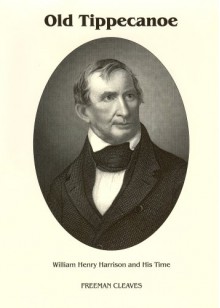
The presidential election of 1840 in America was a notable one for a number of reasons. Not the least of these was its result, as it was the first election in which the nominee of the Whig Party, William Henry Harrison, triumphed by defeating his Democratic opponent, incumbent president Martin Van Buren. Though this was the product of a variety of factors, foremost among them was the Whig's perfection of electioneering techniques that had emerged over the previous sixteen years, the employment of which served in many ways as a model for presidential campaigns down to the present day. In this book Mark Cheathem describes the evolution of presidential campaigning during the antebellum era, showing how these techniques emerged and how they framed the contests for the growing number of Americans voting in national elections.
As Cheathem explains, the development of presidential campaigning was a relatively recent phenomenon. With George Washington as a consensus choice, the nascent political parties did not even confront the problem of electing candidates until the third election in 1796. Even then, elections took place in a very different context, with the electoral college delegates chosen by their state's legislatures rather than in a popular vote. This changed in the 1820s as popular democracy was expanded, a development intertwined with the emergence of the "second party system" in the aftermath of the presidential election of 1824.
With the new parties now needing to appeal to this growing pool of voters they began to develop a range of electioneering devices. Here Cheathem details the emergence of a variety of tools in print, music, and visual culture that sought to promote a chosen candidate and undermine their opponent. As the dominant mass media of their time newspapers were at the forefront of this, often serving as the most direct means for candidates to reach out to their supporters across long distances. But the songs and displays at rallies also emerged as important implements for campaigns to rally voters to support their man. Cheathem also details the growing role women played in this process, as the contemporary views about their role as moral guardians proved a valuable asset in political campaigns.
Cheathem describes this in a brisk narrative that demonstrates a command of both the campaign material of the era and the secondary source literature on his subject. By weaving into this a succinct narrative of the presidential politics of the time, he provide a useful background to the issues touched upon in the campaign materials he describes. All of this is presented in a fluid text that provides its readers with a clear presentation of the era and makes a convincing argument about the development of presidential campaigning in the era. The result is a book that everybody interested in American politics should read, both for the understanding it provides in the development of modern electioneering, both for better and for worse.

 Log in with Facebook
Log in with Facebook 






